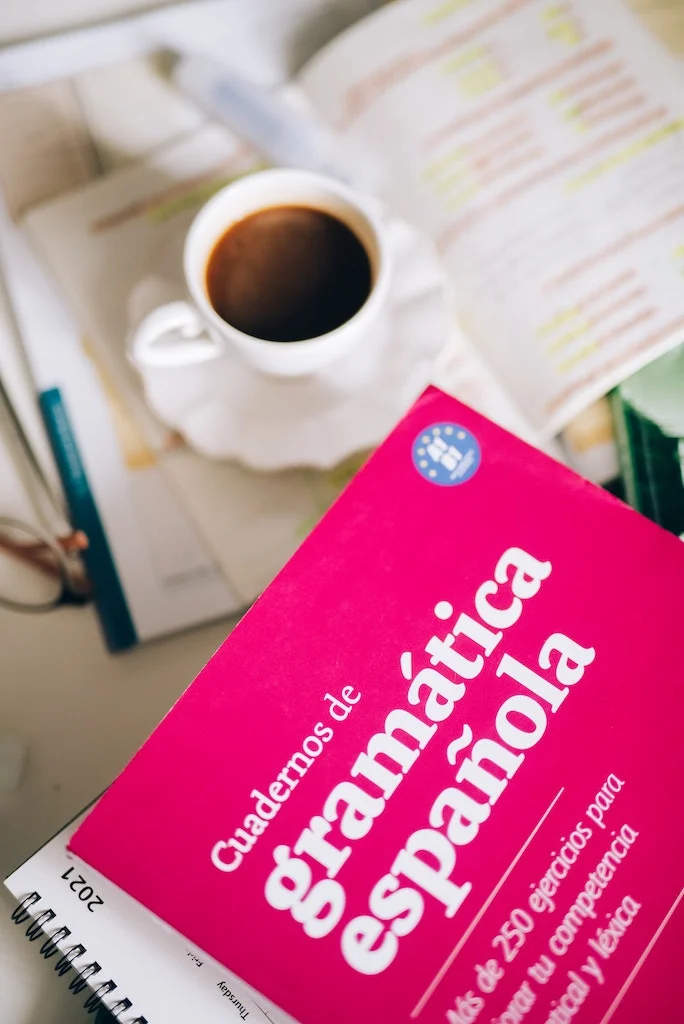For beginners of the Spanish language, a great way for you to practice conjugations and acquire vocabulary word knowledge is to learn the common Spanish adjectives. That is because common adjectives and descriptive words are the first things that is taught by language teachers. But it is more than that. In fact, descriptive adjectives are helpful for Spanish learners in the long run. You will need to describe the physical characteristics and the person’s behavior in Spanish more often than you think. With that said, you will need a list of Spanish adjectives to describe the people you encounter in your day-to-day life.

Spanish Adjectives to Describe a Personality
Learn About Spanish Adjectives
Adjectives are an essential part of any language. These are words that describe someone’s physical appearance, and personality traits. With different adjectives, you can use various words of different meaning to express yourself more creatively and clearly in Spanish.
 When learning about useful Spanish adjectives, you will notice that several of them are quite similar to their English counterparts. This will help you build your Spanish vocabulary lesson. Moreover, when studying Spanish nouns, Spanish words, and new vocabulary, you need to know about some of the key Spanish grammar concepts. These include:
When learning about useful Spanish adjectives, you will notice that several of them are quite similar to their English counterparts. This will help you build your Spanish vocabulary lesson. Moreover, when studying Spanish nouns, Spanish words, and new vocabulary, you need to know about some of the key Spanish grammar concepts. These include:
#1 Genders
When you are using an adjective from the new language you just learned, you need to take into consideration the gender of the noun. And in this case, it’s the person’s appearance you are trying to describe. According to the general rule, when you are describing a male, you should end the word in -o. For females, on the other hand, adjectives end with an -a.
Moreover, words that end in a consonant in an -e or in the suffix -ista are the same whether you are talking about a male or female noun. However, there are several exceptions to this rule. You see, an adjective ends in a consonant when male. Some require an added -a when female.
#2 Numbers
If you want to use adjectives to describe a person’s personality, make sure that you are using common adjectives that match the number of people you are talking about. There are also cases that adjectives must change when you are talking about more than one person. If the word you are using ends in a vowel, you only need to add an -s. On the other hand, if it ends in a consonant, add an -es.
How about when you are talking about a group consisting of mixed-gender people? The default is to use the masculine form of the adjective. However, some people include both masculine form and feminine form in spoken Spanish. They do this to fairly represent both genders.
Possessive Adjectives

You will find a free worksheet, extra practice activity no. documents, a blog post, and a guest post on the internet for useful Spanish adjectives. There are also the Spanish possessive adjectives that you may want to learn about. And like any other adjectives in Spanish, possessive adjectives have to change for the feminine and plural form. Here’s a vocab list of possessive adjectives:
Singular – Plural – English Word
- Mi – Mis – My
- Tu – Tus – Your
- Su – Sus – His/Her/Its/Your (belonging to someone you address as usted)
- Nuestro/Nuestra – Nuestros/Nuestras – Our
- Vuestro/Vuestra – Vuestros/Vuestras – Your (belonging to people you address as vosotros/vosotras)
- Su – Sus – Their/Your (belonging to people you address as ustedes)
Here are some example sentences using the Spanish possessive adjectives:
Tu comida española es deliciosa.
Your Spanish food is delicious.
¿Dónde está tu hermana?
Where’s your sister?
¿Por qué no traéis a vuestros hijos?
Why don’t you bring your children?
The second set of Spanish possessive adjectives include mine, yours, among others. They also change in the feminine and plural form.
Singular – Plural – English Word
- mío/mía – míos/mías – mine/of mine
- tuyo/tuya – tuyos/tuyas – yours/of yours (belonging to tú)
- suyo/suya – suyos/suyas – his/of his; hers/of hers; of its; yours/of yours (belonging to usted)
- nuestro/nuestra – nuestros/nuestras – ours/of ours
- vuestro/vuestra – vuestros/vuestras – yours/of yours (belonging to vosotros/as)
- suyo/suya – suyos/suyas – theirs/of theirs; yours/of yours (belonging to ustedes)
Here are some phrases and simple sentences:
un amigo mío
a (male) friend of mine
one of my (male) friends
una revista tuya
a magazine of yours
one of your magazines
una tía suya
an aunt of his/hers/theirs/yours
one of his/her/their/your aunts
una amiga nuestra
a (female) friend of ours
one of our friends
For easy learning of Spanish grammar, you might want to study definite and indefinite articles for masculine nouns (subject of the sentence ) and feminine noun. A definite article is used to identify a particular thing or person. These include el, la, los, and las. “El” is used before the masculine singular form of nouns, “La” is used before feminine singular nouns, while “Los” (masculine) and “Las” (feminine) are used before plural nouns.
The indefinite article, on the other hand, is used to refer to something unspecific, or that you do not know about. These include un, una, unos and unas. Un is used before masculine singular nouns, una is used before feminine singular nouns, unos is used before masculine plural nouns, and unas is used before feminine plural nouns.
You should learn about the different forms of Spanish verbs.
These are:
- Estar = To be
- Ser = To be
- Tener = To have
- Haber = To have (auxiliary verb)
- Hacer = To do or make
- Ir = To go
- Venir = To come
- Decir = To say or tell
- Poder = To be able
- Dar = To give
- Ver = To see
- Poder = To know
List of Spanish Adjectives
 If you want a good way to pick up proper grammar patterns of Spanish vocabulary? A good idea is to listen to native Spanish speakers. Nonetheless, the following list of adjectives, both in Spanish and in English word counterparts, is helpful if you want to use a Spanish adjective to talk about a person’s appearance.
If you want a good way to pick up proper grammar patterns of Spanish vocabulary? A good idea is to listen to native Spanish speakers. Nonetheless, the following list of adjectives, both in Spanish and in English word counterparts, is helpful if you want to use a Spanish adjective to talk about a person’s appearance.
These include masculine and feminine adjectives for Spanish color, different words to describe body parts, and kind of person, among others.
- Alto/a – Tall
- Bajo/a – Short
- Delgado/a – Thin
- Gordo/a – Fat
- Guapo/a – Good-looking
- Feo/a – Ugly
- Joven – Young
- Mayor – Old
- Bonito/a – Pretty
To Describe a Person’s Hair:
- Castaño – Brown
- Canoso/Gris Grey
- Negro – Black
- Rubio – Blond
- Corto – Short
- Largo – Long
- Liso – Straight
- Ondulado – Wavy
- Rizado – Curly
To Describe a Person’s Skin Color:
- Blanco/a – Light-skinned
- Moreno/a – Dark-skinned
To Describe Someone’s Eyes:
- Azules – Blue
- Marrones – Brown
- Negros – Black
- Verdes – Green
- Grandes – Big
- Pequeños – Small
Keep in mind that such adjectives used for physical descriptions work with the verb ser. So, the sentence structure and word order should be:
[Subject of the sentence] + [ser conjugated] + (adv/adj) + [adjective]
Here are some example sentences on how you can use these words to describe a person.
La chica es guapa.
The girl is good-looking.
Él tiene los ojos marrones.
He has brown eyes.
Ella es alta, joven y guapa.
She is tall, young, and good-looking.
Ella tiene grandes ojos marrones.
She has big brown eyes.
Los chicos son guapos.
The boys are handsome.
Ella tiene cabello rubio.
She has blond hair.
Person’s Personality
Here is the vocabulary list of useful Spanish adjectives to describe a person’s behavior and personality. Keep in mind that some of the English words below may have the same spelling as the Spanish word but there is a subtle change in Spanish pronunciation, and some have a different context.
 Positive Spanish Personality Adjectives:
Positive Spanish Personality Adjectives:
- Alegre – Happy/Cheerful
- Ambicioso/Ambiciosa – Ambitious
- Amable – Kind
- Amigable – Friendly
- Caliente – Brave
- Callado – Quiet
- Cortés/Educado – Polite
- De actitud abierta – Open-minded
- De mentalidad cerrada – Closed-minded
- Digno de Confianza – Trustworthy
- Divertido – Funny
- Feliz – Happy
- Generoso – Generous
- Honesto/Honesta – Honest
- Inteligente – Intelligent
- Interesante – Interesting
- Linda – Sweet
- Llisto, lista – Clever/Smart
- Modesto/Modesta – Modest
- Optimista – Optimistic
- Paciente – Patient
- Responsable – Responsible
- Sociable – Sociable
- Trabajador – Hard-working
Negative Spanish Personality Adjectives:
- Deshonesto/Deshonesta – Dishonest
- Egoísta – Selfish
- Estúpido, estúpida – Stupid
- Grosero/Grosera – Rude
- Hablador – Talkative
- Imprudente – Careless
- Malhumorado – Bad-tempered
- Molestoso/Molestosa – Annoying
- Perezoso/Perezosa – Lazy
- Perseverante – Perseverant
- Pesimista – Pessimistic
- Prudente – Cautious
- Sin prejuicios – unprejudiced
- Tacaño – Mean
- Terco/Testarudo/Tozudo – Stubborn
If you want to describe someone’s personality, you can begin using El es (He is) or Ella es (She is). And if you want to describe your personality or character, you start with Yo soy. There are the main differences in describing people.
Here’s a simple sentence an example:
El es feliz hoy.
He is happy today.
Other example sentences:
Tener confianza en sí mismo.
Have self-confidence.
Deberías ser un poco cuidadoso.
You should be a little careful.
Eres una buena persona.
You are a good person.
Ella es una persona confiable.
She is a reliable person.
Spanish adjectives list for feelings or temporary states:
- Ansioso/a – Anxious
- Avergonzado/a – Embarrassed
- Cansado/a – Tired
- Contento/a – Happy
- Enojado/a – Angry
- Enfermo/a – Sick
- Frustrado/a – Frustrated
- Preocupado/a – Worried
- Triste – Sad
Here’s a comprehensive list of Spanish adjectives for situations/events/places/things:
- Aburrido/a – Boring
- Barato/a – Cheap
- Caro/a – Expensive
- Complicado/a – Complicated
- Difícil – Difficult
- Divertido/a – Fun
- Fácil – Easy
- Limpio/a – Clean
- Nuevo/a – New
- Sucio/a – Dirty
- Viejo/a – Old
This another list of important Spanish adjectives is composed of adjectives of nationality:
- Africano – African
- Americano – American
- Australiano – Australian
- Italiano – Italian
- Mexicano – Mexican
- Escocés – Scottish
- Francés – French
- Inglés – English
- Islandés – Icelandic
- Brasileño – Brazilian
- Hondureño – Honduran
- Panameño – Panamanian
- Canadiense – Canadian
- Estadounidense – American (USA)
- Nicaragüense – Nicaraguan
- Chino – China
- Indio – Indian
- Suizo – Swiss
Apart from Spanish adjectives, you might also want to learn about some basic Spanish conversation phrases.
 Let’s go over some basic phrases that are commonly used in Spanish:
Let’s go over some basic phrases that are commonly used in Spanish:
Casual Greetings
-
Hola! – Hello
- ¿Como estas? – How are you?
- ¿Como te va? – How’s it going?
- ¿Que tal? – What’s up?
- ¿Que pasa? – What’s happening?
Formal Greetings
- ¿Cómo eres? / ¿Como esta usted? – How are you?
- Buenas tardes – Good evening, but also Good afternoon
- Buenos dias – Good morning
- Buenas noches – Good night
Informal Good-Bye
- Nos vemos – See you later
- Hasta luego – later
- Adios – Bye
Formal Good-Bye
- Adios – Bye
- Que pase un buen dia – Have a nice day
- Hasta pronto – See you soon
Other Basic Phrases
- Por favor – Please
- Gracias – Thank you
- Lo siento – Sorry
- Salud – Bless you (after someone sneezes)
- Sí – Yes
- No – No
- ¿Quién? – Who?
- ¿Qué? – What?
- ¿Por qué? – Why?
- ¿Dónde? – Where?
- Me llamo… – My name is…
- ¿Cómo te llamas? – What’s your name?
- Mucho gusto – Nice to meet you
- Estoy bien, gracias – I’m well thank you
- Disculpa. ¿Dónde está el baño? – Excuse me. Where is the bathroom?
- ¿Qué hora es? – What time is it?
- Estoy perdido/a – I am lost
- Por favor, habla más despacio = Would you speak slower, please
- Te extraño – I miss you
- Te quiero – I love you
Miscellaneous Phrases
- Buena suerte – Good luck
- ¿hace calor aquí? – Is it hot in here?
- No entiendo – I don’t understand
- Entiendo – I understand
- Entiendo un poco – I understand a little
- Tengo hambre – I am hungry
- Tengo sed – I am thirsty
- Estoy aburrido – I am bored
- Mi comida favorita es la pizza – My favorite food pizza
- Tengo sueno – I am sleepy
- Estoy cansado – I am tired
- Tengo tarea – I have homework
- No tengo tarea – I don’t have homework
- ¿Tienes tarea? – Do you have homework?
- Yo quiero ir al cine – I want to go to the movies
- Yo no quiero ir al cine – I don’t want to go to the movies
- ¿cómo eres? – Who are you?
Studying Spanish adjectives to describe people in Spanish is useful. It is the best way for you to learn how to use words for descriptions of people. After all, you will encounter several situations where you need to be able to describe people. At the end of the lesson for Spanish adjectives, you will be happy to know that your basic vocabulary for the Spanish language will improve.

